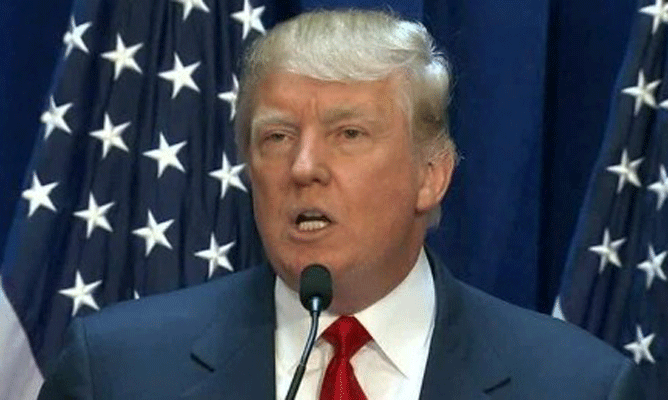
A United States (US) organisation involved in media literacy education has warned that President Donald Trump’s excessive use of social media, notably micro-blogging site twitter, is making it difficult to carry out its work.
By Hazel Ndebele

Speaking to journalists during the recently ended reporting tour on media literacy and press freedom in the 21st century in the US, National Association for Media Literacy Education (NAMLE) executive director Michelle Ciulla Lipkin said Trump’s hyper tweeting was dangerous and should be stopped.
Eighteen journalists from various countries among them Zimbabwe attended the reporting tour which was organised by the US State department and administered by Meridian International Center.
Lipkin said Trump and his advisors do not understand the implications of his tweets to organisations like NAMLE which strive to teach and promote media literacy.
“Trump and his advisors need to understand the implications of the information flow that come from his social media platform abuse. His advisors, staff and his press communication’s team need to take the information flow from his tweeter platform more seriously than they are because it is so highly dangerous,” said Lipkin. “Certainly we have never seen this type of flow of information, this is the first time social media has played a big role so we have to figure out a way to keep up. All we want is for his advisors to tell him to stop tweeting.”
Lipkin said teaching media literacy in the 21st century and under Trump’s administration has become more complicated. She said the high use of social media means that the organisation will not be able to respond quickly to explaining different messages being conveyed in such platforms.
Lipkin described media literacy as being able to evaluate and analyse messages encoded and decoded by the media.
- Chamisa under fire over US$120K donation
- Mavhunga puts DeMbare into Chibuku quarterfinals
- Pension funds bet on Cabora Bassa oilfields
- Councils defy govt fire tender directive
Keep Reading
She further explained that the US does not have a national standard or educational mandate for media literacy.
“I am sure this is happening all over the world but speaking for the US, there is a new literacy movement as we have some difficulty in the way we talk about media literacy because there is also news literacy, health literacy, financial literacy and digital literacy,” said Lipkin. “We very much like to get together with all of these different movements to make change in education but because there is different groups, there is always a challenge on how do we present ourselves as a united front.”
Since last year’s US presidential campaign season, there has been growing tension between Trump and the media as he accuses the Fourth Estate of reporting “fake news”. According to the Pew Research Centre, most US adults view the current tension between Trump and the US news media as problematic and impacting them directly. “About three in four US adults (73%) say that these tensions are getting in the way of access to important national political news and information,” a survey by the centre revealed.











